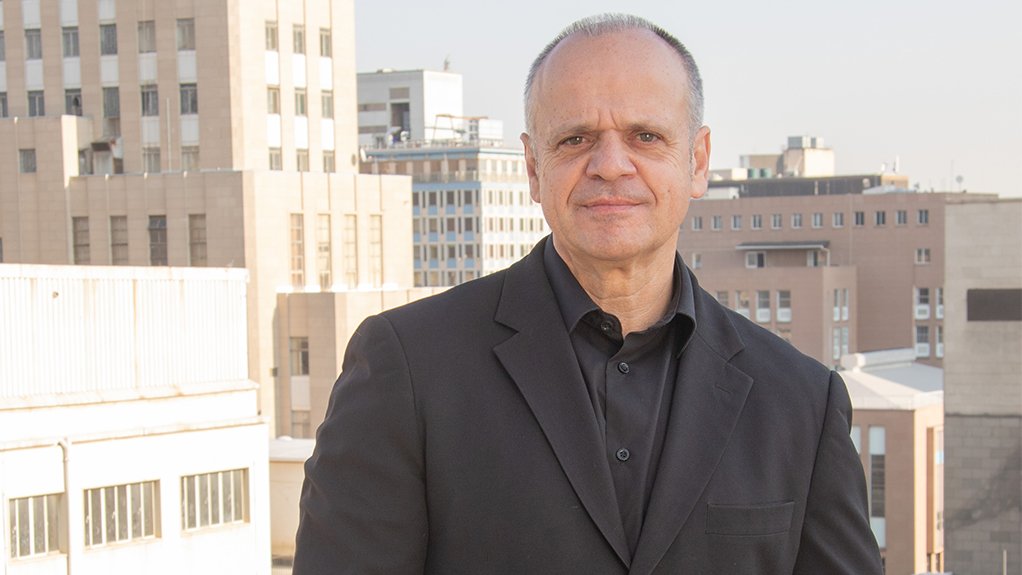Seifsa joins Busa in opposing new Employment Equity Sector Targets
Industry employer organisation the Steel and Engineering Industries Federation of Southern Africa (Seifsa), which is a member of industry organisation Business Unity South Africa (Busa), has confirmed its support for Busa’s legal challenge against the recently promulgated Employment Equity (EE) Sector Targets.
Busa on September 22 announced that it had initiated legal proceedings over the EE Sector Targets, which came into effect on September 1, saying the targets were flawed and unworkable.
“Seifsa has no in principle objection to the provisions of the Employment Equity Act (EEA) in pursuit of meaningful workplace transformation. However, we remain seriously concerned about the numerous irregularities that occurred in formulating the final sector targets.
“This is despite ongoing consultations between Seifsa and senior officials in the Department of Employment and Labour, and also between Busa and the Minister of Employment and Labour,” says Seifsa CEO Lucio Trentini.
“Business concerns [about the regulations] are focused around serious and irrational substantive and procedural irregularities. The nature, tone and content of consultations between business and government fell short of what would be considered good-faith consultations,” he explains.
Further, the categorisation of manufacturing in the EEA as an all-encompassing category that includes all forms of manufacturing across the board is patently wrong, Trentini says.
Manufacturing entails vastly different economic subsectors and activities across the economy, all differing very significantly in size, complexity of operations, demographics and input costs, among others.
Even within the metals and engineering sector, there is no uniformity between the 12 subsectors that make up the sector.
“The Minister of Employment and Labour has the power to identify subsectors and has failed to do so,” he avers.
Additionally, business is concerned about the apparent lack of empirical and/or statistical data and the methodology used at arriving at the sector targets. Consultations around these matters and others, that will be ventilated in legal papers, need to go beyond being a mere tick-box exercise, Trentini states.
“Genuine engagement marked by transparency, sector-specific insights and meaningful feedback, all of which have been absent in the lead-up to the promulgation of the Act, are key ingredients of any good-faith consultation engagement,” he admonishes.
The new EE Regulations introduce specific targets for designated groups in South Africa. These targets aim to increase the representation of black people, women and individuals with disabilities in the workforce, particularly in upper occupational levels.
Designated employers will have to align their employment equity plans with these targets or face potential fines, compliance orders and exclusion from doing business with the State.
The regulations will now be the subject of a legal challenge.
Regardless of what the courts may decide in this and other legal challenges, South Africa will not reach its full economic potential if transformation were halted. The slow pace of transformation in the country, including in the metals and engineering sector, is of great concern, says Trentini.
The manufacturing industry in general, and the metals and engineering sector in particular, are in need of transformation, not only in terms of general business ownership, but also in terms of appointments to senior leadership positions and the composition of boards of directors, he says.
Transformation must be accelerated, but transformation must be pursued in a way that expands opportunity, not limits it. This is in South Africa’s interest and in the long-term interest of business, he says.
“A concerted effort must be made by South Africa to create meaningful opportunities for all South Africans so that the country becomes a fairer, more just and prosperous place. We deserve a future that values merit alongside diversity, stability alongside redress and, as framed in our Constitution, the promise to 'improve the quality of life of all citizens and free the potential of each person',” says Trentini.
Article Enquiry
Email Article
Save Article
Feedback
To advertise email advertising@creamermedia.co.za or click here
Press Office
Announcements
What's On
Subscribe to improve your user experience...
Option 1 (equivalent of R125 a month):
Receive a weekly copy of Creamer Media's Engineering News & Mining Weekly magazine
(print copy for those in South Africa and e-magazine for those outside of South Africa)
Receive daily email newsletters
Access to full search results
Access archive of magazine back copies
Access to Projects in Progress
Access to ONE Research Report of your choice in PDF format
Option 2 (equivalent of R375 a month):
All benefits from Option 1
PLUS
Access to Creamer Media's Research Channel Africa for ALL Research Reports, in PDF format, on various industrial and mining sectors
including Electricity; Water; Energy Transition; Hydrogen; Roads, Rail and Ports; Coal; Gold; Platinum; Battery Metals; etc.
Already a subscriber?
Forgotten your password?
Receive weekly copy of Creamer Media's Engineering News & Mining Weekly magazine (print copy for those in South Africa and e-magazine for those outside of South Africa)
➕
Recieve daily email newsletters
➕
Access to full search results
➕
Access archive of magazine back copies
➕
Access to Projects in Progress
➕
Access to ONE Research Report of your choice in PDF format
RESEARCH CHANNEL AFRICA
R4500 (equivalent of R375 a month)
SUBSCRIBEAll benefits from Option 1
➕
Access to Creamer Media's Research Channel Africa for ALL Research Reports on various industrial and mining sectors, in PDF format, including on:
Electricity
➕
Water
➕
Energy Transition
➕
Hydrogen
➕
Roads, Rail and Ports
➕
Coal
➕
Gold
➕
Platinum
➕
Battery Metals
➕
etc.
Receive all benefits from Option 1 or Option 2 delivered to numerous people at your company
➕
Multiple User names and Passwords for simultaneous log-ins
➕
Intranet integration access to all in your organisation




















